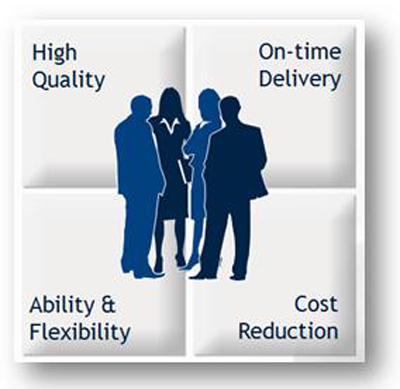Value Engineering
Value engineering (VE) is a systematic method to improve the "value" of goods or products and services by using an examination of function. Value, as defined, is the ratio of function to cost. Value can therefore be increased by either improving the function or reducing the cost. It is a primary tenet of value engineering that basic functions be preserved and not be reduced as a consequence of pursuing value improvements.
In the United States, value engineering is specifically spelled out in Public Law 104-106, which states "Each executive agency shall establish and maintain cost-effective value engineering procedures and processes."
Value engineering is sometimes taught within the project management or industrial engineering body of knowledge as a technique in which the value of a system's outputs is optimized by crafting a mix of performance (function) and costs. In most cases this practice identifies and removes unnecessary expenditures, thereby increasing the value for the manufacturer and/or their customers.
VE follows a structured thought process that is based exclusively on "function", i.e. what something "does" not what it is. For example a screw driver that is being used to stir a can of paint has a "function" of mixing the contents of a paint can and not the original connotation of securing a screw into a screw-hole. In value engineering "functions" are always described in a two word abridgment consisting of an active verb and measurable noun (what is being done - the verb - and what it is being done to - the noun) and to do so in the most non-prescriptive way possible. In the screw driver and can of paint example, the most basic function would be "blend liquid" which is less prescriptive than "stir paint" which can be seen to limit the action (by stirring) and to limit the application (only considers paint.) This is the basis of what value engineering refers to as "function analysis".
Value engineering is a service which maximizes the functional value of a project by managing its evolution and development from concept to completion through the comparison and audit of all decisions against a value system suggested by IPMS and determined by the client. IPMS can provide design review and alternative design suggestions through third party services, at design phase to achieve minimized project as to be in compliance with scope and applicable standards.

In the United States, value engineering is specifically spelled out in Public Law 104-106, which states "Each executive agency shall establish and maintain cost-effective value engineering procedures and processes."
Value engineering is sometimes taught within the project management or industrial engineering body of knowledge as a technique in which the value of a system's outputs is optimized by crafting a mix of performance (function) and costs. In most cases this practice identifies and removes unnecessary expenditures, thereby increasing the value for the manufacturer and/or their customers.
VE follows a structured thought process that is based exclusively on "function", i.e. what something "does" not what it is. For example a screw driver that is being used to stir a can of paint has a "function" of mixing the contents of a paint can and not the original connotation of securing a screw into a screw-hole. In value engineering "functions" are always described in a two word abridgment consisting of an active verb and measurable noun (what is being done - the verb - and what it is being done to - the noun) and to do so in the most non-prescriptive way possible. In the screw driver and can of paint example, the most basic function would be "blend liquid" which is less prescriptive than "stir paint" which can be seen to limit the action (by stirring) and to limit the application (only considers paint.) This is the basis of what value engineering refers to as "function analysis".
Value engineering is a service which maximizes the functional value of a project by managing its evolution and development from concept to completion through the comparison and audit of all decisions against a value system suggested by IPMS and determined by the client. IPMS can provide design review and alternative design suggestions through third party services, at design phase to achieve minimized project as to be in compliance with scope and applicable standards.

 English
English Türkçe
Türkçe